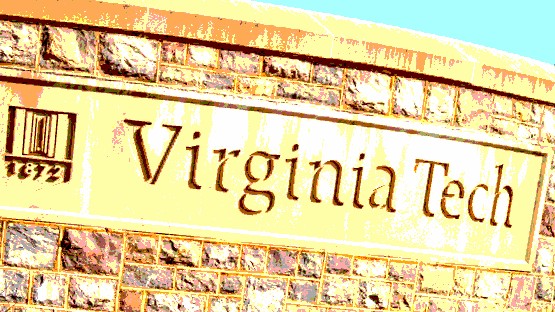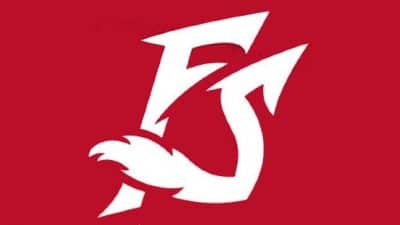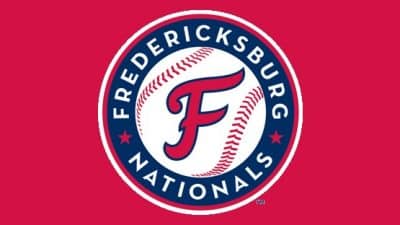
Bennett already makes $1.8 million a year. That’s 50 times what a schoolteacher makes. Why do we pay basketball coaches more than schooltechers? What a society we live in.
So, why do we pay basketball coaches more than schoolteachers? Seems pretty obvious to me. And no, it’s not because college basketball and college football make money for their schools. Only the top 20 percent of I-A athletics programs actually end the year in a surplus; most lose money hand over fist.
College sports doesn’t exist to turn a profit; it exists to serve as a loss leader. Look at the case of UVa. basketball and Tony Bennett as a prime example there. When the accounting is done for the 2013-2014 saeson, it may very well turn up that there’s some surplus left over with ticket sales at JPJ surging as the year went on, and UVa.’s share of NCAA Tournament revenues and merchandise sales spiking with the renewed fervent interest in Virginia basketball.
What won’t show up in those surplus-deficit statements is what’s important. The alumni base, first and foremost, is energized about the ol’ alma mater in a way that we haven’t seen in years. Look at photos of the crowds at the Greensboro Coliseum, PNC Arena and Madison Square Garden. There was as much orange and blue in those arenas as there is your average game night at JPJ. The Amtrak Crescent heading up to NYC for the Sweet 16 was packed with orange- and blue-clad fans.
It’s not hard to imagine that those same alums who have been following the ‘Hoos so closely the past several weeks won’t soon be inclined to open up their checkbooks and send a donation to dear old U-V-A. So there’s your first reason you spend so much money on a coach who can win basketball games on a consistent basis; something about how you have to spend money to make money.
The era of good feeling also has an impact on prospective students. It’s well-documented that schools whose athletic teams in football and basketball have high-level success see an increase in applications as a result of that success. Which isn’t hard to pin down; human nature has us all wanting to be associated with a quality brand name, and a basketball team is an extension of the UVa. brand name, the same as the UVa. hospital is an extension of the brand name, and the English department is an extension of the brand name.
The basketball program, though, unlike the hospital or English department or any other academic department, gets publicity on a scale that far surpasses anything in a classroom. Which isn’t to say that the basketball coach is more important than the researcher working on a cure for pancreatic cancer, or the social scientist educating a new generation of students on what makes our economy and government and other public institutions work the way that they do, because he’s not, clearly.
We’re just never going to see 15,000 people pay $50 and $100 and up 20 times a year to hear the medical researcher lecture on his findings, and a TV network pay millions for the broadcast rights to the lectures.
That’s reality. Whether you like that or not is your issue. You can solve that problem by ceasing your own consumption of any and all media: TV news, NPR, movies, live theater, music, you name it, in addition to sports. Media makes the world go ‘round, and it all comes down to the money that pays the bills to create the TV shows and movies and sports and the rest that then provide marketing opportunities for business to reach consumers. If the money that makes it all happen seems somehow dirty to you, then stop chipping in.
For the rest of us, for whom the development of society post-1858 isn’t an abomination unto God and man, we already know how things work. CEOs and other top business executives, movie stars and directors, professional athletes and coaches and people at the top levels of government lobbying make gobs of money, and the reason they do is because the people who hire them think they can make gobs of money off their efforts.
Which brings us back to Tony Bennett. Already making $1.8 million per year, plus incentives. That’s quite a few gobs of money. So why does he need more? Any good liberal arts graduate who had to take Economics 201 can tell you.
Supply and demand: the supply of coaches who can take a team from 10 wins to 30 wins in five years isn’t what it used to be; the demand for those coaches is, as always, extraordinarily high.
The University of Virginia is as much an economic actor as Bennett is in this equation. If UVa. wants to keep its alums happy to the point where they continue to travel all over the country to follow the athletics teams and then open their checkbooks to donate money to the school, then it needs to be willing to open its own checkbook to make sure that its investment in the basketball program continues to pay off.
If you don’t like it that a schoolteacher doesn’t have the ability to participate in the marketplace in the same way, tell that schoolteacher to do something else with his or her life. I used to get asked to speak to college journalism classes until I started off my talks with a line about how the first piece of advice I could give was to avoid going into journalism as a career.
(I’ve followed my own advice there; journalism is a part-time job for me. I make my living running a web design and marketing business, and fortunately, things are going really, really well for me after making that mid-life career switch.)
And if you don’t like basketball coaches getting paid a lot of money to do their jobs, don’t watch basketball. There’s plenty to do in a day to keep yourself otherwise occupied. It all costs money, of course, but as long as you tell yourself that it doesn’t, and doesn’t leave a carbon footprint and the rest, you might just be able to sleep well at night.










